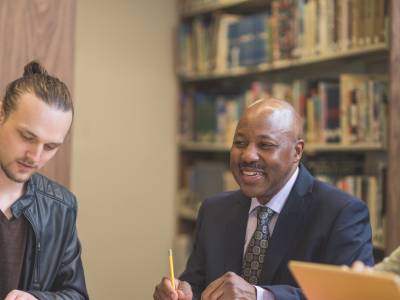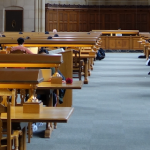My experience as a Fulbright scholar
By invictus88 in Problems with the Fulbright scholarship system on May 26, 2008
Funding is one of the foremost concerns of any LL.M. applicant, particular those from developing countries dreaming of studying in the US. With the total cost of studying at a top-tier US law school amounting to around US$60,000.00 (tuition and living expenses), even one year of postgraduate study is an impossible dream for those whose families are not wealthy. The Fulbright scholarship is thus one of the most prestigious and sought-after grants for aspiring US postgraduate students. I was among those who had long dreamed of landing a Fulbright scholarship, with the notion that it covers all expenses. I was thus ecstatic when I was selected as a principal Fulbright candidate in the Philippines for LL.M. studies in the school year 2008-2009.
1) Almost immediately, however, I received disappointing news. During the meeting wherein it was announced that I was selected as a principal Fulbright candidate, my co-scholars and I were informed that the cap of a Fulbright scholarship (at least in the Philippines) is US$32,500.00, around half of the amount required for LL.M. studies. We thus would have to secure counterpart funding from the schools, or would have to be capable of shouldering the balance of expenses, in order to be able to study at the US.
2) I then discovered that the Fulbright application process is extremely cumbersome. The national Fulbright office, along with its mother organization, the Institute of International Education (IIE) in New York, is in charge of submitting all scholars' applications to universities. Fulbright scholars are not allowed to communicate directly with universities, and must course all correspondence through the local Fulbright office. This is a very impractical arrangement, particularly in the case of the Philippines where there is an 12-13 hour time difference with New York.
3) We were informed that our applications would be sent to two (2) of our preferred universities, while Fulbright/IIE would select the other schools our applications would be sent to. While the Fulbright application form is accepted in lieu of universities' respective application forms for most postgraduate fields, the top-tier law schools still require Fulbright scholars to accomplish their respective application forms (along with the time-consuming essays, personal statements, etc.). The advantages of this system are that only one (1) set of recommendation letters needs to be submitted to the law schools, rather than having to send a separate set per university, and that the application fees are shouldered by IIE. Also, IIE shoulders the TOEFL fee (and the GRE fee for non-LL.M. courses).
I chose Harvard and Columbia as my preferred universities, and went about accomplishing their application forms. I sent the forms to Fulbright, which in turn, mailed them to IIE in New York in time for the December deadlines of the two (2) schools. I emailed IIE directly and received confirmation that my applications to Harvard and Columbia would be sent in time. Come January 2008, however, I emailed IIE again inquiring whether Harvard and Columbia had confirmed receipt of my applications. IIE replied, explaining that Harvard had received my application but that my Columbia application was NOT submitted.
At this point, I was furious, as IIE had committed to submitting my Columbia application and I had exerted much time and effort in completing the Columbia application alongside my demanding work as a litigator in a top law firm. Fulbright/IIE explained that with their 20 years of experience, Columbia had not offered any cost-sharing, and thus they decided unilaterally not to submit my application.
At the very least, I should have been informed of this illogical position, and given the opportunity to substitute Columbia with another preferred university, rather than having to hope for admission into Harvard and being stuck with the schools Fulbright/IIE chose. Fulbright/IIE decided to send my application to Case Western Reserve University, American University, and State University of New York - Buffalo. While all of these are good schools in their own right, I was not interested in studying at any of them.
Preparing for an LL.M. is a long process, beginning long before the actual application process. The aspiring LLM student must get good grades in his/her first law degree (law is a postgraduate degree in the Philippines), publish scholarly legal articles, engage in relevant extra-curricular activities such as joining debate/moot court competitions, and acquire relevant work experience, all in the hope of distinguishing himself/herself enough to get accepted into a top law school. Accordingly, it was extremely unfair for Fulbright/IIE to ruin one's chances of getting into one's desired law school. At most, they should have honored my choice, and should I be admitted without cost-sharing, it is up to me to accept it or not. Fulbright/IIE should not have written my chances of getting a tuition waiver from Columbia off immediately, without allowing me to first try my luck. I conveyed this sentiment to Fulbright/IIE, and they fortunately had a change of heart and submitted my application to Columbia. Luckily for me, Columbia accepted my application even if it was already late January.
4) While waiting for the application results, my fellow Fulbright scholars began receiving their results. One such scholar was admitted into NYU for a non-law postgraduate degree, but would have to shoulder US$7,000.00. Eventually, he was accepted into the University of Missouri, which would cost US$7,000.00 LESS than the US$32,500.00 Fulbright scholarship cap. He was told that should he still wish to study at NYU, he would have to pay US$14,000.00, and not just US$7,000.00, as he would have to compensate Fulbright for the amount it would have saved had he gone to Missouri! The lack of logic in this reasoning was extremely appalling. Fortunately, Fulbright did not insist on this irrational policy and allowed the student to enroll at NYU at the original cost. It is nevertheless frustrating, however, that Fulbright/IIE would even come up with such an illogical policy.
5) I eventually received the results of my applications, and was informed that I was accepted into Columbia. Not only was I accepted, Columbia granted me a US$20,000.00 tuition waiver! Unfortunately, this was still not enough as I would still have to shoulder US$14,500.00, as the estimated total cost of LL.M. studies at Columbia was US$67,000.00. Shouldering this amount, however, was not an option for me. Not only was this amount beyond my means, it would have been impossible for me to repay this amount. We were informed that Fulbright scholars (at least those in the Philippines) would have to leave the US within 30 days after completion of their studies, and would not be able to stay for an extra year to undergo an internship at a law firm. Moreover, we would not even be able to extend our stay in the US until July in order to be able to take the New York bar exam! With no possibility of working in the US after LL.M. studies, it would be very difficult to repay US dollar loans with Philippine peso salaries.
In the end, I rejected Columbia's offer and withdrew as a principal Fulbright candidate, and opted for the British Chevening scholarship instead. The Chevening scholarship can cover the entire cost of LL.M. studies in the UK. Moreover, Chevening scholars apply to the schools directly and are allowed to communicate with the schools without any intermediaries. Chevening scholars are thus in full control of the application process. They can communicate with the universities directly.
I cannot understand why Fulbright/IIE does not reduce the number of scholars (there were 10 principal Fulbright candidates for the school year 2008-2009, while only 4 Chevening scholars for the same period) so as to enable all of them to study in the US at their preferred universities, regardless of the amount of cost-sharing they receive. Should they receive generous tuition waivers, then that is when Fulbright/IIE can send an alternate candidate to the US. Moreover, Fulbright scholars should be allowed to submit their applications to more than two (2) of their preferred universities. Had I been allowed to do so, I may have had a more affordable, yet personally acceptable, alternative to Columbia in addition to the schools chosen by Fulbright/IIE. In fact, a fellow Fulbright scholar had to turn down an offer of admission into NYU's LL.M. program despite this being the best university for his intended specialization in international finance. Instead, it appears that the goal of Fulbright/IIE is to send as many scholars as they can to the US, regardless of the quality of the schools they go to. Fulbright/IIE would thus prefer that their scholars go to the University of Missouri, even if they had qualified for Columbia or NYU. This ruins the dreams of the scholars, and is obviously very frustrating for the scholar who is forced to go to a lower-tier school when he had qualified for a top-tier school.
While I am deeply honored to have been chosen as a principal Fulbright candidate, and am very thankful for Fulbright/IIE’s efforts at processing my applications, I sincerely hope that reforms to the current system be undertaken. The Fulbright scholarship should be a means for scholars to achieve their dreams, rather than be an obstacle thereto. For all of you out there considering applying for a Fulbright scholarship, check whether the system in your country is similar to that in the Philippines. If so, perhaps you will be better off seeking scholarships from the schools themselves, which will be free of the limitations and frustrations brought about by the Fulbright/IIE system.
Comments
invictus88, Nov 24, 2011 09:20
Thanks for all your comments. I'm glad that three years after I posted this blog, people continue to gain from my experience. I would be interested in hearing about your own experiences from your LL.M. and scholarship applications. As for the specific requirements of Fulbright and Chevening scholarship applications, please refer to the web sites of these institutions. The sites for those applying in the Philippines are as follows:
Chevening
http://ukinthephilippines.fco.gov.uk/en/about-us/working-with-philippines/scholarships-and-education/
Fulbright
http://www.fulbright.org.ph/index.php?option=com_content&view=article&id=31&Itemid=18.
delineatingdes, Sep 23, 2009 15:31
I'm very glad to have stumbled across your article, invectus. Thank you for making this available online. I am scouting for a PhD scholarship as well, and is looking closely at Fulbright. So this is how it goes about. This should save me hours of putting requirements together.
rashed_lu, Aug 26, 2009 12:41
Ohhhhhhhhh ,,,,,,very sad.But we do not get such kind of opputunatiy so '''''''''''''''''''
Blue_horizon, Aug 08, 2009 14:26
Thanks for the article! It's quite hard to find detailed content from ex-fulbright scholars...hence this one is much appreciated.
I've applied for the fulbright '09 program and am waiting for the results, so any info I can get on the program from anyone reading this would be great!
thx in advance! :)
MSF, Mar 17, 2009 12:15
Anyone having any idea if Fullbright gives scholarship for a JD? Do you have to give LSAT as well for that?
Nic1746, Mar 14, 2009 15:56
any filipino who is a recipient of an LLM scholarship?
Nic1746, Mar 11, 2009 17:12
so are you taking now your LLM? I am a Filipino too and I am very much interested to pursue LLM on a scholarship. I am not picky on the kind of university for as long as I qualify for full scholarship.
paperwhale..., Oct 31, 2008 11:50
For invictus88: This article shed some light on my LL. M. woes. Thank you. I am from the Philippines as well, and I plan to take up an LL. M. in the US. My family cannot afford it either, so I am also scouting for a scholarship. I have some questions that I hope you can help me out with. First, should I be admitted to a school before I can apply for a scholarship? Second, when should I apply (for a scholarship and a US law school)? I am expecting to graduate March 2009, then I will be taking the Philippine bar exams on September 2009. Should I start applying now or wait until I graduate? Also, what scholarship programs would you recommend if I plan to study in the States?
schism, Oct 12, 2008 12:47
Insightful article - I myself am an applicant for the Fulbright Fall 2009 Program. However I notice that the process varies from country to country, and might be slightly more 'convenient' in other countries. Nevertheless, thanks for sharing your experience!
msn, Jul 31, 2008 22:23
hey people, I am currently in my penultimate year of study of undergraduate course in india. I am keen on pursuing my LLM either from Harvard/ columbia. What are the criteria for selecting full bright scholars? If anyone from India has applied kindly help me out with it.
wonderer, Jul 17, 2008 01:23
Congratulations invictus! You'll certainly make the most out of your time in the UK.
invictus88, Jul 10, 2008 07:30
Thanks wonderer. Yes, Fulbright in the Philippines takes care of the TOEFL fee, and the TOEFL scores are submitted along with the applications to the various universities. I have fortunately been awarded the Chevening scholarship.
wonderer, Jul 02, 2008 20:39
Very informative article. The process can be very different from country to country. In some countries, they ask applicants to submit their TOEFL/GRE/GMAT scores with the application. I don't understand the financial restrictions for the Philippines. I also find 10 principal candidates to be few for the Philippines.
Please keep us posted on your Chevening application.
pratibha, Jul 01, 2008 06:26
I had also applied for the same from India and as per the system, it took me about 8 months to get the results of the application. I think it would be good if the time can be reduced.
invictus88, Jun 11, 2008 10:18
In my case, the whole process took around five months. I submitted my application in March 2007 (for the 2008-2009 school year), and was interviewed some time in June 2007. I was then informed in the latter part of August 2007 that I was selected as a principal candidate.
depdo, Jun 07, 2008 17:57
I have applied for the fulbright 2009 session. Its been a month since i posted my application. Do u guys have any idea how long they take in proccessing it?
invictus88, May 26, 2008 14:09
Yes, perhaps Fulbright and IIE consider scholars from the Philippines as being more financially capable than those in Pakistan, which is not the case.
Jaan222, May 26, 2008 13:47
Sorry that fulbright disappointed u.............one friend of mine has availed fulbright in pakistan and he got in at Columbia...he communicated directly to the University and then told the fulbright that he was got in.......and hopefully he is going there and i think in Pakistan there is no cap..........
LLM News
LLM Articles
Why Tech Law is the Hot New LL.M. Focus in an AI Era
Nov 14, 2024
Schools are helping lawyers prepare for a fast-changing legal world impacted by AI and developing technology. Students can benefit from a cutting-edge curriculum and new job opportunities.
Connect with Top California Law Schools
Nov 07, 2024
The California Law LL.M. Consortium is giving prospective students in Milan and London the opportunity to meet school and admissions representatives. They will hear about top legal issues and learn about how a U.S. LL.M. can benefit their careers.
Leaping Back into Firm Life After an LL.M.
Nov 05, 2024
Leaving school behind can feel daunting but if a graduate understands the different expectations and is conscious of new technology, it can make returning to a firm that much easier.
Making the Most of Your LL.M.: Why Extracurricular Groups Matter
Oct 28, 2024
Activities outside class time can give students a more well-rounded experience during their degree. They can build crucial skills and expand a student's network to benefit their post-school life.













